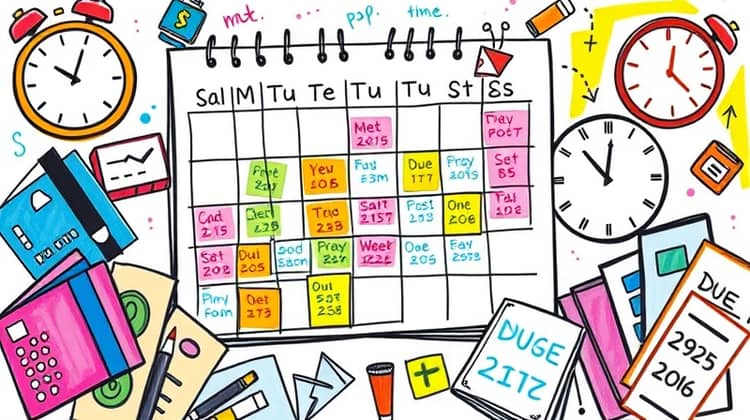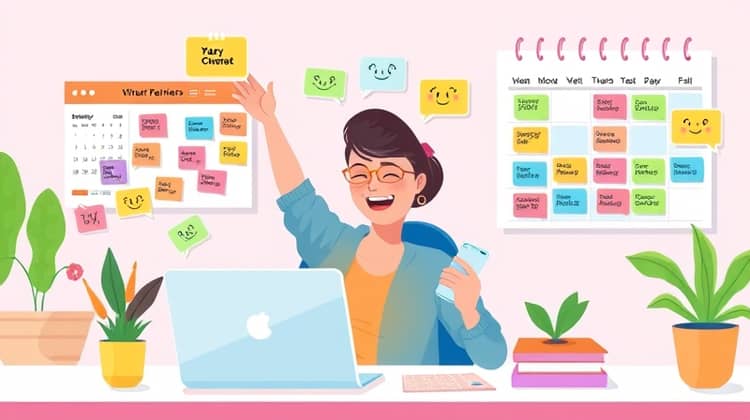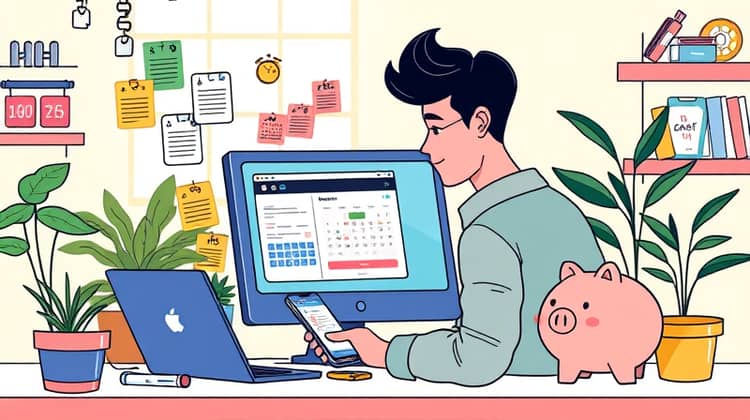Credit card bills can be overwhelming, especially if you're juggling multiple cards and various payments. Understanding how to manage these expenses is critical to maintaining a healthy financial life. With the right strategies, you can take control of your credit card bills and minimize stress.
In this blog post, we will outline seven practical tips to help you manage your credit card bills effectively. Whether you're new to credit cards or looking to improve your financial situation, these tips will provide you with the tools you need to stay on top of your payments and avoid pitfalls.
1. Understand Your Billing Cycle

The billing cycle is the period between credit card statements. It typically lasts 30 days, after which your credit card issuer will generate a statement reflecting all your purchases, payments, and other transactions made during that time.
To manage your bills effectively, it’s essential to understand your billing cycle and when your payment is due. This knowledge will help you plan your payments better and avoid interest charges.
- Know the start and end date of your billing cycle.
- Mark your due date on a calendar.
- Be aware of when your transactions will post to your account.
Understanding your billing cycle puts you in a better position to manage your finances. You’ll be able to allocate funds for repayment ahead of time, ensuring you don’t miss any payments.
Additionally, being informed about your cycle helps you approach spending more strategically. Created a budget aligned with your billing cycle can lead to better decision-making regarding when to make purchases.
2. Set Up Payment Reminders

Setting up payment reminders is an effective way to ensure you never miss a due date. Many credit card issuers offer tools to help you manage your payments, including reminders via email or SMS.
Moreover, you can also set reminders on your personal calendar or use financial management apps to alert you when payments are due.
- Use your phone’s calendar to set reminders.
- Sign up for alerts from your credit card issuer.
- Consider using budgeting apps that integrate payment reminders.
Receiving reminders makes a significant difference in managing credit card bills. It reduces the risk of late payments and helps you stay organized with your finances.
Also, timely payments can improve your credit score over time, as payment history plays a critical role in determining your creditworthiness.
3. Pay More Than the Minimum

Paying the minimum amount due on your credit card can lead to mounting debt over time. Credit card companies profit from high-interest rates, and only making minimum payments can increase the amount you owe substantially.
Instead of just meeting the minimum requirements, strive to pay more than that amount whenever possible, as this will help you reduce the principal balance faster.
- Evaluate your budget to see where you can allocate extra funds.
- Make additional payments on high-interest cards first.
- Set a goal for how much you want to pay down each month.
By paying more than the minimum, you reduce the total interest paid over time, which can save you significant money. Moreover, this habit also helps improve your credit utilization ratio.
In the long run, reducing your credit card debt faster will give you more financial freedom and peace of mind.
4. Avoid Late Fees

Late fees can add substantial costs to your credit card bills. These fees not only create additional debt but can also negatively impact your credit score. Therefore, avoiding them is crucial.
By implementing strategies such as setting reminders and paying more than the minimum, you can significantly reduce the risk of late payments.
- Know your billing cycle and due dates.
- Set up automatic payments for at least the minimum amount.
- Keep track of account balances to avoid overspending.
Staying on top of your payments prevents unnecessary late fees, saving you money in the long term and maintaining a positive credit score. Ignoring these fees can lead to a vicious debt cycle that is hard to escape.
If you're struggling to make payments, reach out to your credit card provider; they may offer options that could alleviate some of the financial strain.
5. Monitor Account Activity

Regularly monitoring your account activity is an essential part of managing credit card bills. By keeping an eye on your transactions, you can identify any unauthorized charges or potential fraud early.
In addition to spotting fraud, monitoring your spending can help you stay within your budget and avoid overspending.
- Check your account weekly for any unusual transactions.
- Review your monthly statements for accuracy.
- Keep track of your spending patterns to identify areas where you can cut back.
An active approach to monitoring your account protects you from fraud and ensures that you're aware of where your money is going. This awareness is vital for maintaining control over your finances.
Ultimately, the more informed you are about your spending, the better equipped you are to manage your credit card bills effectively.
6. Negotiate Lower Interest Rates

High-interest rates can make carrying a balance on your credit card very expensive. If you have a good payment history, consider calling your credit card issuer to negotiate lower rates.
Many consumers do not realize that they can request a lower interest rate, and often, issuers may comply to retain you as a customer.
- Gather information about competitor rates to leverage in negotiation.
- Prepare to explain your good payment history and account usage.
- Be polite but firm when making your request.
Negotiating lower interest rates can lead to significant savings over time, especially if you carry a balance from month to month. It’s crucial to take this step seriously and advocate for yourself.
If your request is denied, consider shopping around for better credit card options that offer lower interest rates.
7. Seek Professional Help if Needed

Managing credit card bills can sometimes feel overwhelming, especially if you’re facing significant debt. If you find yourself struggling to keep up with payments or feeling stressed about your financial situation, consider seeking professional help.
Financial advisors and credit counselors can provide valuable insights and support to help you manage your debt effectively.
- Look for reputable credit counseling services.
- Consider talking to a certified financial planner.
- Research local non-profits that offer financial advice.
Seeking help is not a sign of weakness but rather a proactive approach to taking control of your financial health. Having a professional can provide you with strategies tailored to your unique situation.
By working with experts, you can develop a personalized plan to manage your credit cards and improve your overall financial standing.
Conclusion

In conclusion, managing your credit card bills is essential for your overall financial health. By implementing these seven tips, you can take control of your finances and minimize stress associated with high-interest rates and debts.
From understanding your billing cycle to seeking professional help if needed, these strategies can significantly impact your ability to manage credit card payments effectively.














